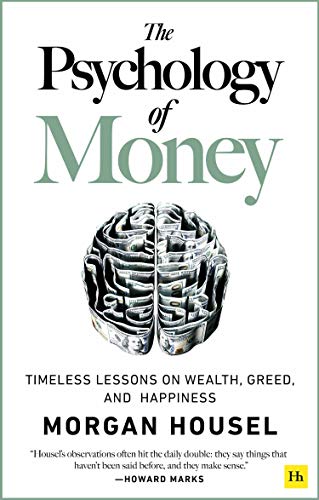
The Psychology of Money Summary of Morgan Housel's Book

The Psychology of Money by Morgan Housel: A Comprehensive Summary and Analysis
In the world of personal finance, there is a common misconception that success is determined by how much you know about money. However, Morgan Housel's book, "The Psychology of Money," challenges this assumption by asserting that financial success is more about behavior than knowledge. First published on January 1, 2020, this nonfiction book falls into the genres of finance, psychology, and nonfiction. Through 19 short stories, Housel delves into the complex ways in which people think about money, offering valuable insights on how to navigate one of life's most important topics.
Characters
While "The Psychology of Money" does not feature traditional characters in the sense of a fictional novel, the book is centered around the many different individuals whose behaviors and attitudes towards money shape their financial outcomes. Housel draws on a diverse range of examples to illustrate his points, from successful investors to average individuals grappling with financial decisions. By using real-life stories, Housel provides readers with relatable examples that demonstrate the psychological factors at play in managing money.
Detailed Summary
The central theme of "The Psychology of Money" revolves around the idea that financial decisions are often influenced by factors beyond rational analysis. Housel challenges the conventional wisdom that money management is purely a mathematical endeavor, emphasizing that emotions, biases, and personal experiences can greatly impact how individuals approach financial matters.
Throughout the book, Housel shares insightful anecdotes and research findings that shed light on the emotional and psychological aspects of money management. He explores concepts such as risk aversion, loss aversion, and the influence of social norms on financial decision-making. By illustrating the ways in which human psychology can shape financial behaviors, Housel encourages readers to develop a deeper understanding of their own attitudes towards money.
One of the key takeaways from "The Psychology of Money" is the importance of adopting a long-term perspective when it comes to financial planning. Housel emphasizes the value of patience, discipline, and humility in achieving financial success. By acknowledging the unpredictability of the markets and the limitations of our own knowledge, individuals can make more informed and rational decisions about money.
Extensive Analysis
Housel's book offers a refreshing perspective on the intersection of psychology and finance, challenging readers to rethink their approach to money management. By highlighting the role of emotions, biases, and social factors in shaping financial decisions, Housel underscores the importance of self-awareness and introspection in achieving financial well-being.
One of the strengths of "The Psychology of Money" is its accessibility and relatability. Housel's use of real-life examples and engaging storytelling makes complex financial concepts easy to understand and apply to one's own life. Whether you are a seasoned investor or someone just starting out on their financial journey, Housel's insights provide valuable lessons that can benefit anyone seeking to improve their financial literacy.
Overall, "The Psychology of Money" is a thought-provoking and insightful read that challenges traditional notions of money management. By exploring the psychological underpinnings of financial behavior, Housel offers a roadmap for making smarter and more intentional decisions about money. Whether you are looking to build wealth, manage debt, or simply gain a better understanding of your own financial mindset, this book is sure to provide valuable insights and practical guidance.
Final thoughts
To conclude, "The Psychology of Money" by Morgan Housel is a compelling exploration of the ways in which psychology influences our financial decisions. By delving into the emotional and behavioral aspects of money management, Housel offers readers a fresh perspective on how to navigate the complexities of personal finance. If you found this summary intriguing, I encourage you to purchase the complete book or listen to the audiobook for a deeper dive into Housel's insights and wisdom.
Remember, financial success is not just about what you know—it's about how you behave. Let "The Psychology of Money" be your guide to mastering the psychological aspects of money management and achieving your financial goals.






Related Books